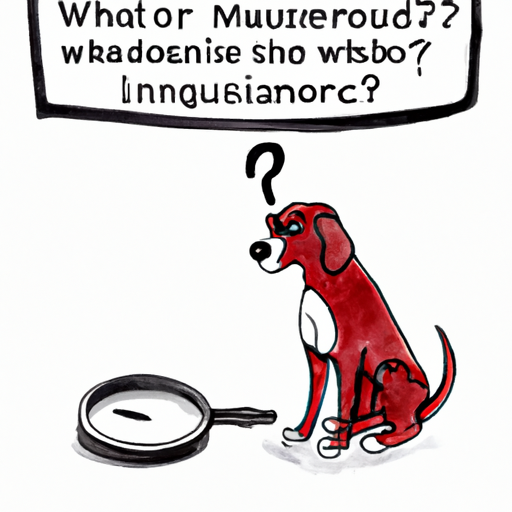As a caregiver, it’s only natural to worry when you notice something amiss with your dog. Something as disturbing as blood in your dog’s stool can easily trigger panic. However, understanding the possible causes can help you respond appropriately and seek timely medical intervention.
H2: Understanding the Two Types of Blood in Stool
When you notice blood in your dog’s stool, it’s crucial to determine whether it’s hematochezia or melena.
- Hematochezia refers to fresh, bright red blood that is often mixed with the stool. This usually indicates problems in the lower digestive system.
- Melena is dark, tarry stool, indicating that the blood has been digested. This can point to issues in the upper digestive system.
Understanding these types can help you communicate effectively with your vet and expedite the diagnostic process.
H2: Dietary Indiscretion and Food Allergies
Sometimes, your dog’s diet can be the culprit.
- Dietary Indiscretion: Dogs are naturally curious and might eat things that they shouldn’t. This can lead to gastrointestinal irritation and result in bloody stool.
- Food Allergies: Some dogs can develop allergies to certain types of food, leading to inflammation and bloody stool.
If you suspect a food-related cause, it’s best to consult with your vet about possible diet adjustments.
H2: Parasites, Viruses, and Bacterial Infections
Several types of parasites, viruses, and bacteria can cause bloody stool in dogs.
- Parasites: Worms such as hookworms, whipworms, and roundworms are common culprits.
- Viruses: Canine parvovirus is a highly contagious virus that can cause bloody diarrhea.
- Bacteria: Certain bacteria, like Campylobacter, can also lead to bloody stool.
Regular deworming and vaccinations can help prevent these infections.
H2: More Serious Health Conditions
In some cases, bloody stool can indicate serious health conditions.
- Gastrointestinal ulcers: These can be caused by certain medications or diseases.
- Cancer: Though rare, gastrointestinal cancer can cause bloody stool.
- Hemorrhagic Gastroenteritis (HGE): This is a sudden, severe inflammation of the gastrointestinal tract.
Any of these conditions necessitate immediate veterinary attention.
H2: Stress
Dogs can also develop bloody stool due to stress, referred to as stress colitis. Changes in routine, moving to a new place, or the arrival of a new pet or family member can trigger this condition.
FAQ
Q: Should I take my dog to the vet immediately if I notice bloody stool?
A: Yes, it’s best to seek immediate medical attention to rule out serious conditions.
Q: Can a change in diet cause bloody stool?
A: Yes, sudden changes in diet or dietary indiscretion can lead to bloody stool.
Q: Can stress lead to bloody stool in dogs?
A: Yes, dogs can develop stress colitis, which can result in bloody stool.
Remember, as a caregiver, your awareness and prompt action can make all the difference in your dog’s health.



